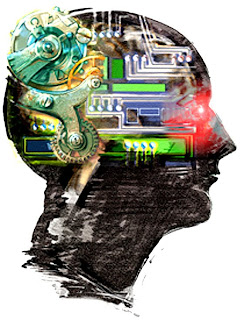I suppose it helps us live a lot, it makes us smarter and more powerful...so, I'm for
Elizabeth Fedotova, MIPT April 2011
The question of whether a computer can think is no more interesting than the question of whether a submarine can swim.
Dijkstra
Unless there are slaves to do the ugly, horrible, uninteresting work, culture and contemplation become almost impossible. Human slavery is wrong, insecure, and demoralizing. On mechanical slavery, on the slavery of the machine, the future of the world depends.
Oscar Wilde in "The Soul of Man Under Socialism"
Machines will be capable, within twenty years, of doing any work that a man can do.
Herbert Simon, 1965.
Today's AI is about new ways of connecting people to computers, people to knowledge, people to the physical world, and people to people.
PATRICK WINSTON, MIT AI Lab briefing, 1997
AI is an engineering discipline built on an unfinished science.
Matt Ginsberg, reported in SIGART bulletin Vol 6, No.2 April 1995
In activities other than purely logical thought, our minds function much faster than any computer yet devised.
DANIEL CREVIER
The key issue as to whether or not a non-biological entity deserves rights really comes down to whether or not it's conscious.... Does it have feelings?
RAY KURZWEIL, USA Today, Aug. 19, 2007
Artificial Intelligence is a two-edged sword. On the one hand, it allows us to create intelligent artifacts with human-like perception and cognition. On the other hand, it accelerate's people's heavy dependence on artifacts.
MAX BRAMER
A year spent in artificial intelligence is enough to make one believe in God.
ALAN PERLIS
A lot of cutting edge AI has filtered into general applications, often without being called AI because once something becomes useful enough and common enough it's not labelled AI anymore.
Nick Bostrom, Director of the Future of Humanity Institute at the UK's Oxford University








 You shouldn't be sceptical. Strong AI is reachable in the near future. All that we need is 10^19
You shouldn't be sceptical. Strong AI is reachable in the near future. All that we need is 10^19